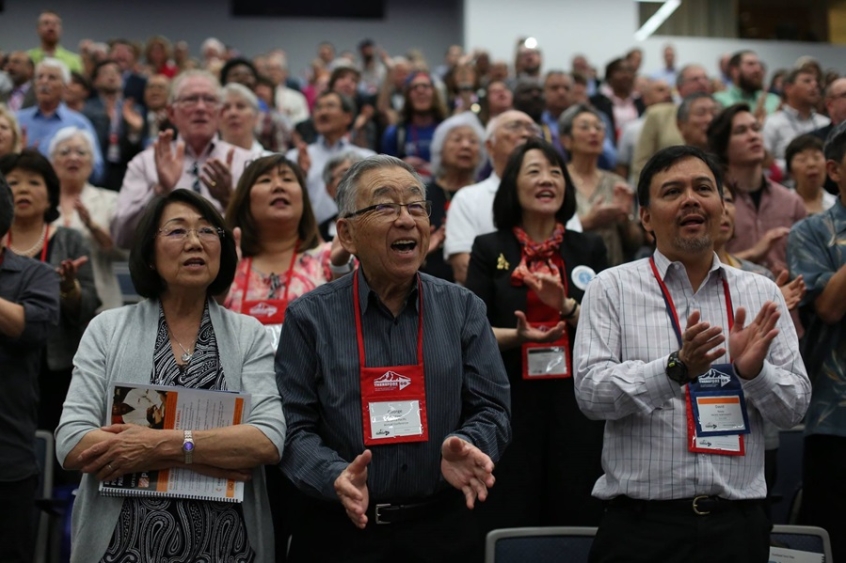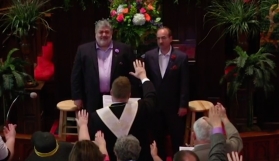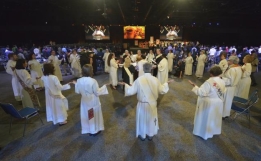
The United Methodist Church is standing its ground against allowing same-sex marriages and homosexual clergymen.
In their ongoing United Methodist Church General Conference in Portland, Oregon, where discussions are being made on key issues, majority of the church's members have rejected a proposal from a lesbian, gay, bisexual and transgender (LGBT) group to change the format of the discussions during the gathering.
A total of 57 percent of the 864 delegates who attended the event at the Oregon Convention Center voted against the LGBT proposal to change the church's so-called "Rule 44," which would have broken down the group discernment process into small groups.
This appeared to be just a simple format change, but it was seen by some as a first test for the Methodist Church on whether or not it will already allow homosexual clergymen and same-sex marriages—both of which it has long disallowed.
Some LGBT individuals pushed for the change in discussion format after supposedly being bullied during the 2012 General Conference.
Even at the start of this year's conference, which will last until May 20, Bishop Warner H. Brown Jr., president of the Council of Bishops, already anticipated divisive discussions on homosexuality.
"As we discuss our different opinions about same-gender relationships, may we remember our duelling points of view are anchored in our desire to be faithful," Brown said during his sermon, as quoted by Religion News Service.
"We hold our respective positions as firmly as our conscience and experience dictates, but can we not also seek the path of unity among Christians with different views on this issue as we have on other disputed matters?" he added.
True enough, the debate on Rule 44 became so heated that it prompted delegate Margie Briggs, a layperson from the Missouri Annual Conference, to say, "I believe we're confusing God at this point."
Delegate Dorothee Benz, a layperson from the New York Annual Conference, however, believes that the Methodist Church should not have rejected the proposal from the LGBT group.
"I think Rule 44 is the best chance we have for an honest conversation and to move past this fear of talking about LGBTQ people," Benz also told Religion News Service.















